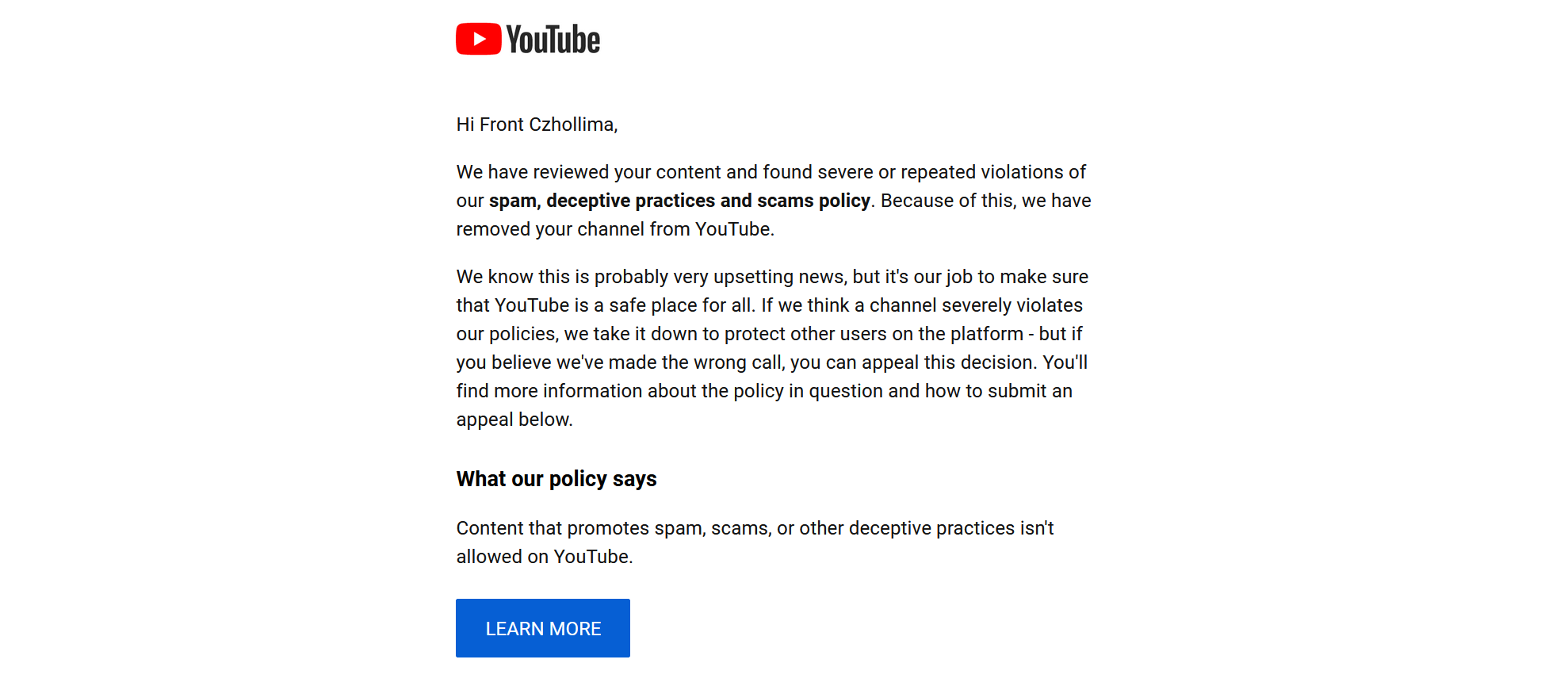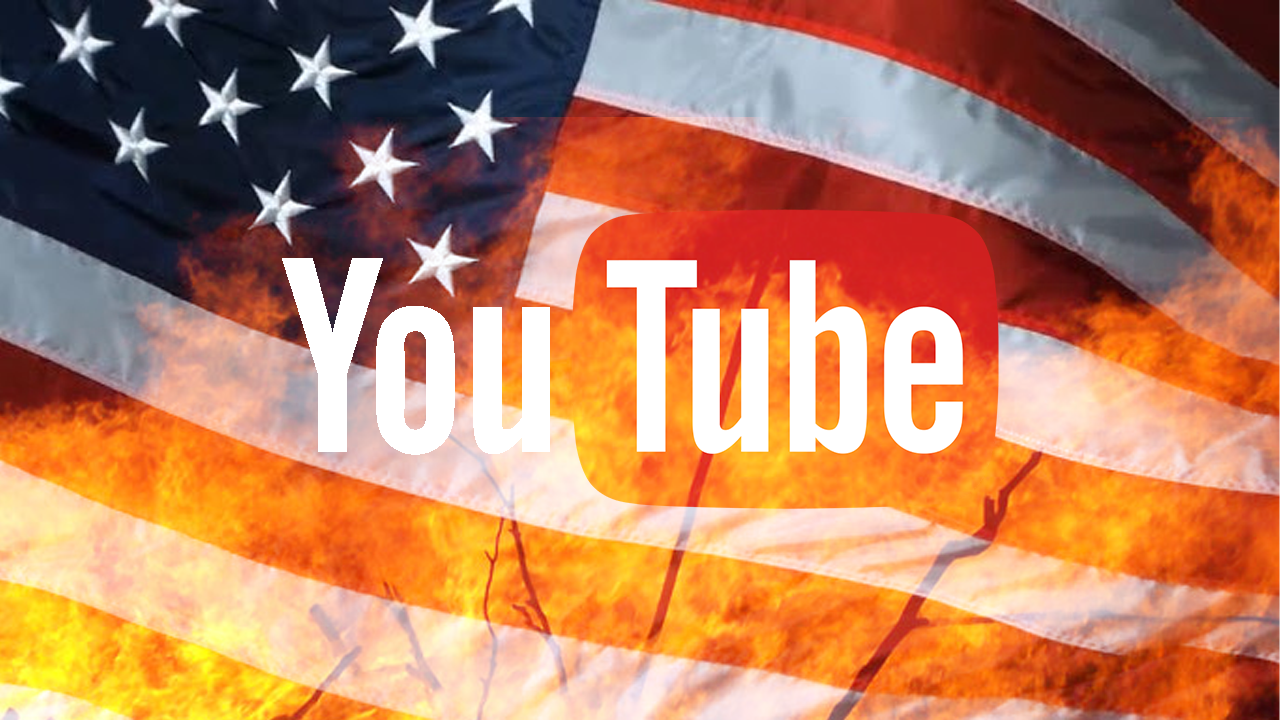
Recently, we have experienced firsthand what many are beginning to notice: the idea of “freedom of speech” in America is not as free as it seems. Our YouTube channel, which primarily focused on music and films from the DPRK and their translations, was suddenly removed at 4:00 AM (Central European Time) on October 24th under the pretext of violating “spam and deceptive practices” rules. This claim is not only false but also highlights the growing contradiction between what the United States and its allies declare as freedom of speech and the reality of censorship that silences those with differing views.
The Irony of Censorship in the Land of Freedom of Speech
For years, the United States has portrayed itself as a global defender of freedom of speech, often criticizing other countries for censorship. Meanwhile, our channel was unjustly removed simply because it showcased cultural content that did not align with the mainstream. Our content was educational, providing translations of Korean musical works for a global audience interested in gaining a better understanding of a culture that is often misunderstood or ignored.
The accusations of “spam” and “deceptive practices” were entirely baseless. There were no ill intentions, clickbait, or misleading information—just music, art, and translations aimed at supporting cultural understanding. The fact that such content can be silenced on a platform that claims to support freedom of speech clearly indicates that freedom of speech is “free” only when it aligns with certain political and cultural norms.
Freedom of Speech in America, Only for the Chosen Few
Our experience demonstrates a troubling pattern: expressions that challenge the dominant narrative or offer a different perspective are increasingly being censored. While American tech giants like YouTube claim to provide platforms for all voices, the reality is that their enforcement of so-called “community guidelines” often stifles voices that do not fit a specific worldview.
Our channel was modest, focusing on cultural content, yet it was removed without warning. What does this say about the boundaries of freedom of speech? It suggests that in America, freedom of speech is conditional. It is free if you stick to the status quo, but when you step outside those boundaries—especially if your content touches politically sensitive topics—you risk losing your platform.
This is not just the issue of a single removed channel. It is part of a larger problem, where the idea of freedom of speech is used selectively, and the gatekeepers of major platforms decide which expressions are acceptable and which are not. In our case, the content related to the culture of the DPRK seems to be reason enough for removal, even though our materials were apolitical and focused on culture and translations.
The Illusion of Freedom of Speech
The removal of our channel is a blatant contradiction to the United States’ supposed commitment to freedom of speech. How can a country that prides itself on protecting freedom of expression justify censoring educational content that offers a different cultural perspective? It seems that “freedom of speech” in the American context has become nothing more than a slogan, a tool for promoting a particular worldview while silencing those who diverge from it.
The truth is that freedom of speech in America is not about promoting open dialogue. It is about imposing a narrow definition of what is allowed to be said, heard, and shared. Anything outside of that scope—especially content that challenges or complicates the Western narrative—is subject to being labeled as spam, misinformation, or deceptive practices.
A Call for Restoration
I appeal to YouTube to reconsider its decision to remove our channel. The content we created and shared was neither spam nor deceptive in any way. It focused on cultural translations, offering viewers insight into a country that is often misunderstood. Such content, if anything, should be encouraged as it promotes intercultural understanding, not fraud or ill intentions.
Censorship of our channel is not just a violation of YouTube’s own guidelines—it is a blatant contradiction of the principles of freedom of speech that the United States supposedly stands for. It is time for platforms like YouTube to live up to their promises and protect the diversity of voices, even when those voices do not fit the comfortable mainstream pattern.
The removal of our channel was unjust and serves as a stark reminder that freedom of speech in the United States is not as free as it seems. If we continue to allow tech giants to silence voices offering alternative perspectives, we risk losing the very freedoms that we supposedly hold dear. It is time for us to stand up against this kind of censorship and demand that platforms like YouTube stop controlling speech based on political or cultural biases.
Freedom of speech should mean what it says: the freedom to express, share, and engage with ideas, even those that challenge the dominant narrative. Our channel may have been removed, but the conversation about censorship is far from over.

